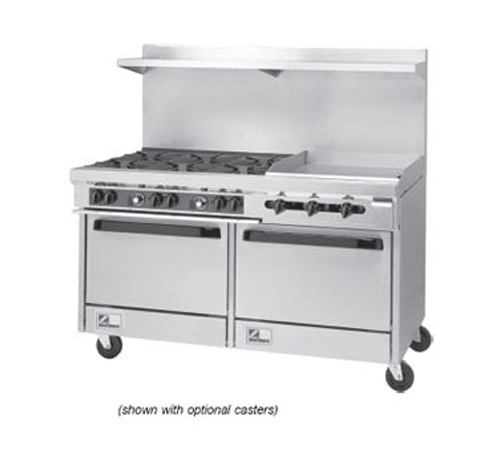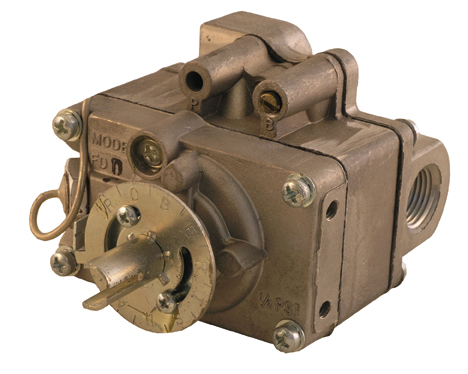 “Which _____________ do you recommend?” This is a question I have been asked countless times by owners/managers that operate the restaurants I have worked in.
“Which _____________ do you recommend?” This is a question I have been asked countless times by owners/managers that operate the restaurants I have worked in.
The real question they are asking is: “What equipment will run the longest and have the fewest breakdowns and cost the least to fix?”
The answer to such a profound question is “it depends.” I have been involved in repairing restaurant equipment for years. I have worked on a lot of different equipment made by many different manufactures. I cannot name a single brand of equipment that I would recommend in all situations. Nor have I discovered a manufacturer that designed equipment with an eye towards maintenance.
I have found some companies where the replacement parts are less expensive when compared to similar products. I have also found the reverse: particular brands of equipment where the replacement parts were higher than others who make equipment of the same type. The biggest difference I find in various manufactures is the AVAILIBILITY of replacement parts in a timely manner.
Some things to consider when buying restaurant equipment:
Is the equipment a “KEY” or “critical” to your operation? In other words, if this equipment went out on a busy Saturday night, how bad would it affect your ability to serve your customer? You need to know how critical the equipment is before you make any decision on what brand of equipment to purchase! If the equipment is a “KEY” piece of equipment, you need to do some research before you buy! Remember, you will likely own this equipment for YEARS. If you make the wrong decision, you will be stuck with the results for as long as you own the equipment.
1. Company (or Brand)
I would not buy a “key” piece of equipment in anything except a well known national brand. The reason goes way beyond what kind of warranty is offered. A well known national brand will be in business 10 years down the road when you need a good service department to call.
2. Warranty
The warranty on equipment can vary widely. What’s more, the way warranty service is performed can also be different from one company to the next. Some equipment has different warranties with regard to various parts of the equipment. For instance, an ice machine might have a one year warranty on everything except the compressor that comes with a 5 year warranty. Inform yourself on the warranty and what it covers. Your new equipment will come with a warranty card. Read it and send the little card in and register the equipment.
I make a copy of the card before I send it in and staple the copy to the operator manual for future reference. It has vital information you might not have in 10 years such as the model and serial numbers along with the date it was installed.
3. Parts Availability
You should inquire on how hard the equipment is to get parts for. This is where it is critical to have purchased a well known national brand. You should not rely on the salesman to provide you this information. I would call a place that sells parts and just ask. The question should be something like this: “I am buying a _____________, do you stock parts for this equipment? If I were to order a critical part, how long would it take to receive it?”
In other words, does the company keep critical parts ON THE SHELF for this equipment? No company keeps ALL the parts for any given equipment in stock; a good company, however, will keep CRITICAL parts available to ship right away on common equipment. This can make a REAL difference on a “KEY” piece of equipment when you have to have it back up and running FAST.
4. Model
You should try and buy a model that has been made for several years. Most manufacturers will make popular models of equipment for several years before changing anything significant. You might be looking for the latest “bells and whistles” on your new equipment and have to purchase a model that just came out; but unless it is something you HAVE to have, I would not recommend it. It takes parts companies time to determine the critical parts needed and spend the money to put them on the shelves. If you stick with a tried and true model, you will likely have less headaches in the future if it should break down.
Another good reason not to go with the “newest model” is your kitchen will not be stuck with working out the “kinks” on something that has not been tested in the “real world.” Chances are it will be warranty work, but you will still suffer some down time waiting for a technician to show up and fix it.
Under no circumstances do you want a “prototype” model. You will have to investigate the model number you are buying to insure you are getting what you want. You can’t count on a salesperson telling you “this is the prototype!” The manufacturer’s website is a good place to find out; or just call the tech service line and ask one of the technicians that work for the manufacturer what he or she thinks of a given model. These folks are usually honest about problems with a particular model.
Use all the information available to make a decision you can feel good about not only now but when the equipment breaks down in a few years. You notice I said WHEN it breaks down; not IF it breaks down. All equipment will break down! The best thing you can do is educate yourself so you will be prepared when it happens.
Before taking action from the content or resources published here, we request that you visit and review our terms of use.
 Corner Booth Blog | TundraFMP Restaurant Supply, News & Equipment Blog
Corner Booth Blog | TundraFMP Restaurant Supply, News & Equipment Blog




Hi Kevin, after 30 years I have to replace my Pinnacle deli cases. They behave like champs but since they went out of business doors and gaskets are tough to replace. Who makes the best double duty self contained units nowadays ?
Thanks, Mike D